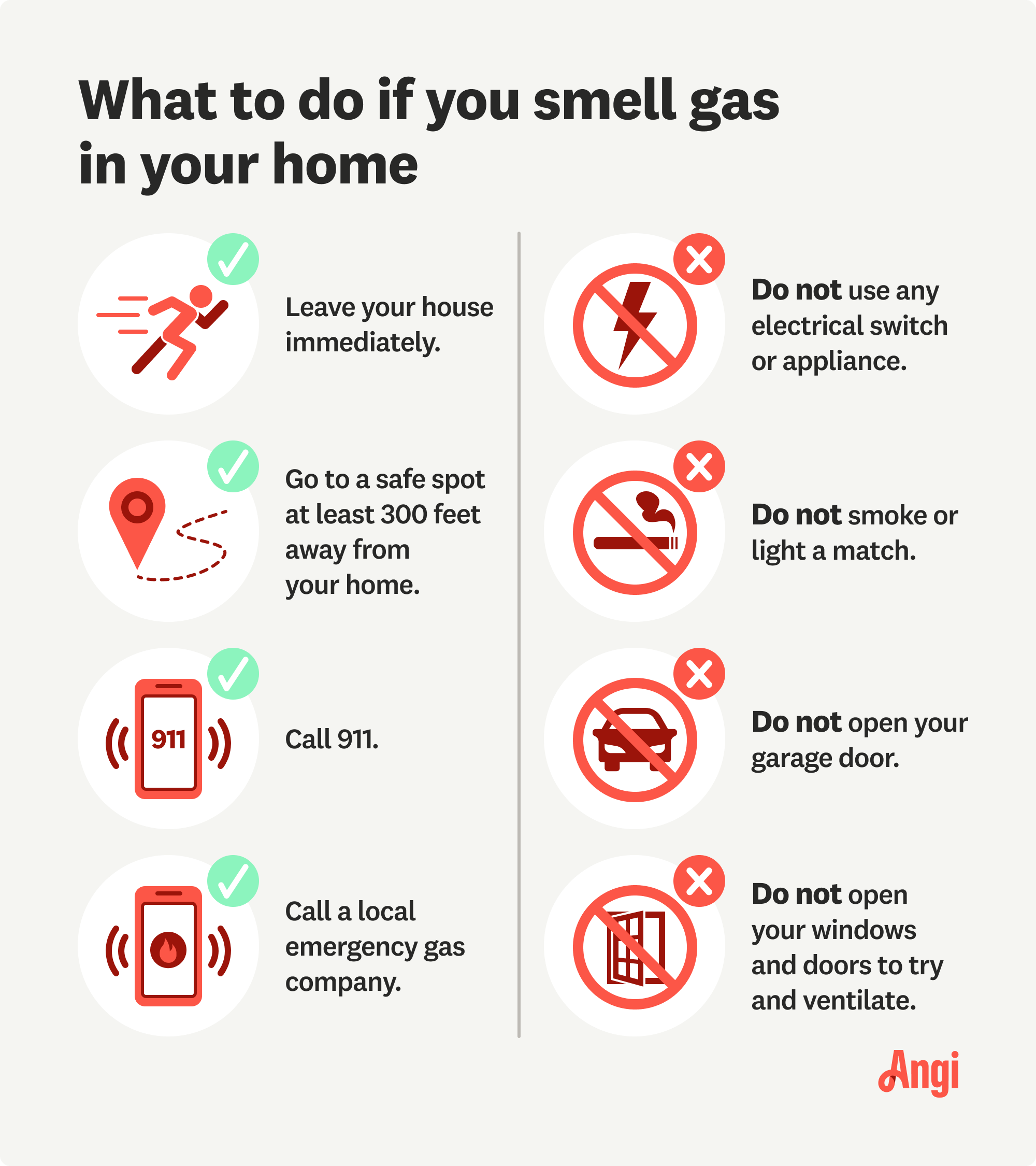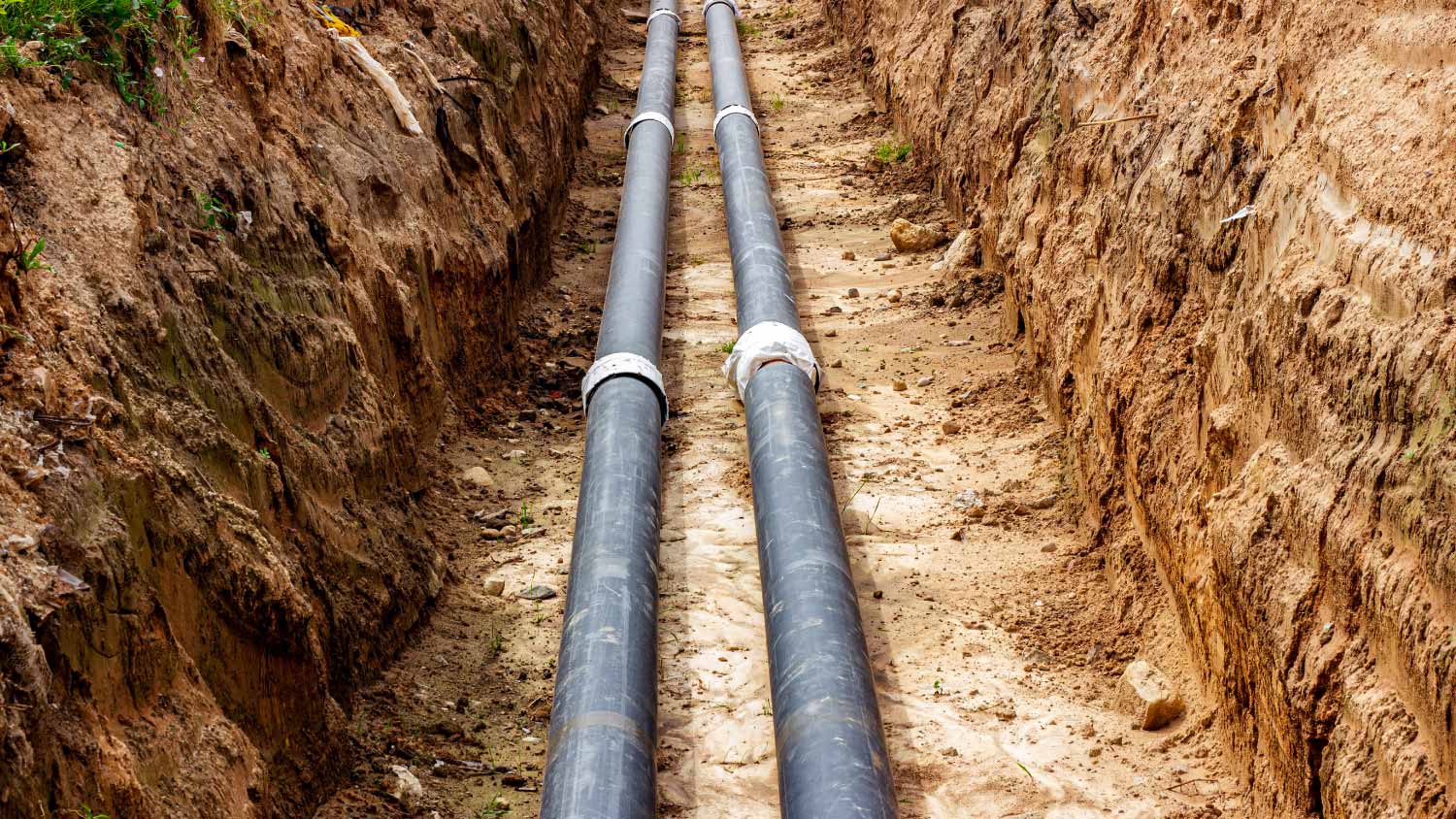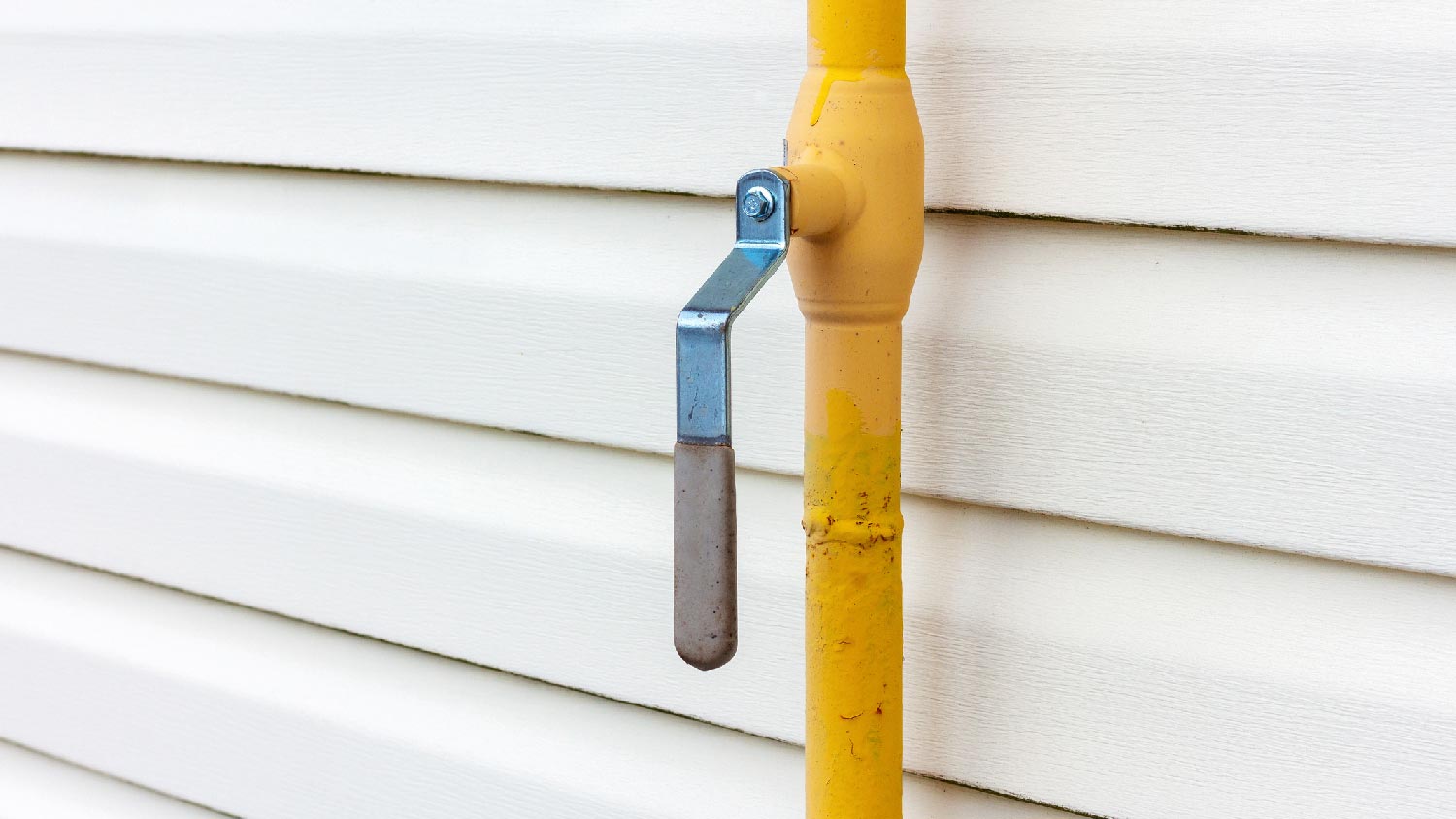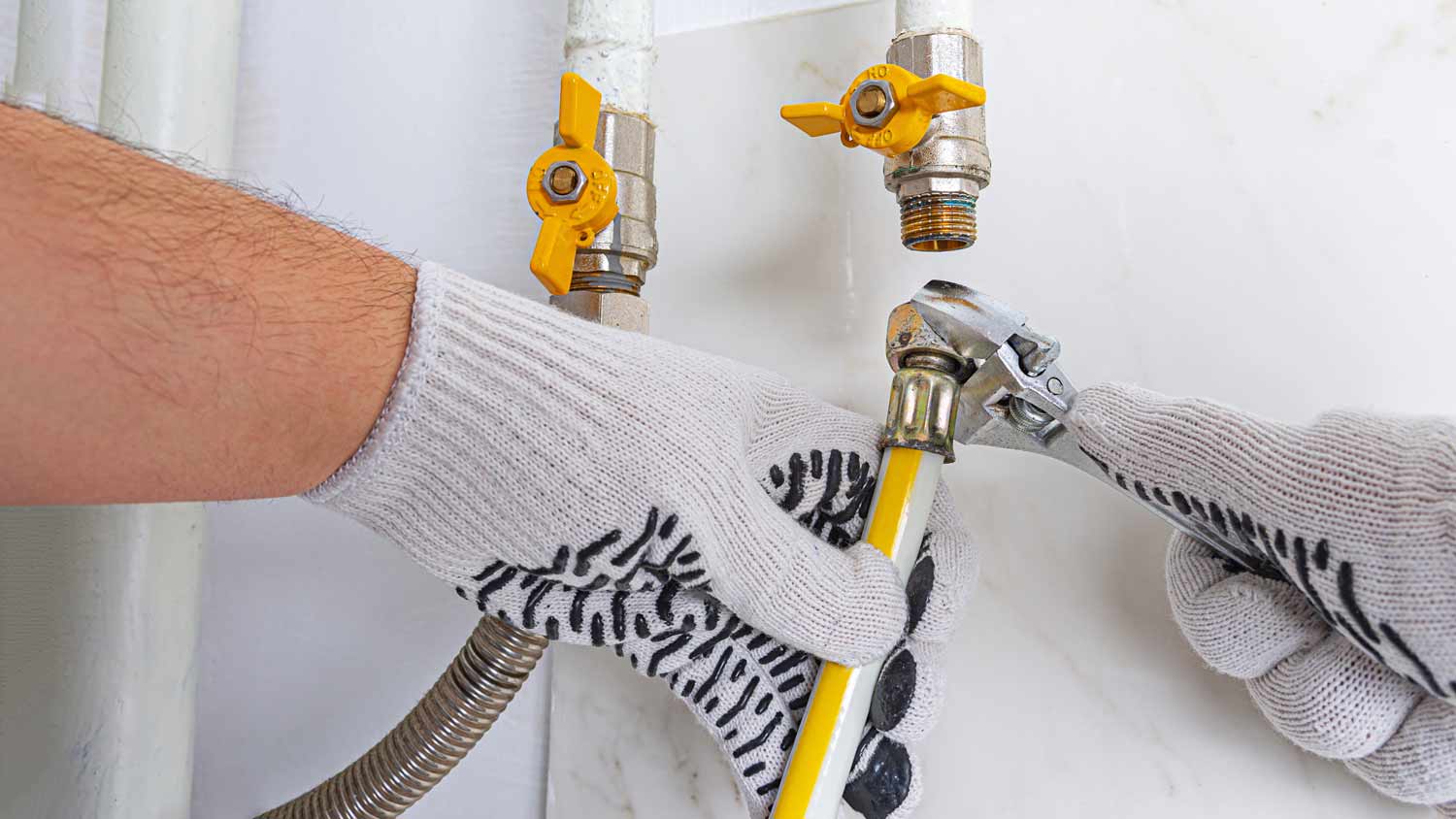Can You Use Galvanized Pipes for Gas?
Not all gas pipes are created equal


Black pipe is a better choice for gas because it’s more durable and has a longer lifespan.
Galvanized pipe is made of steel with a zinc coating that prevents corrosion and rust.
However, the zinc coating can wear down over time, which can cause pipe failure.
Check local building codes to find out if you’re allowed to use galvanized pipe for gas.
You rely on your gas pipes for the safe operation of all of the gas appliances in your home. As you look into different pipe types, you may wonder if you can use galvanized pipes for gas. The answer depends on your local building codes, your preferences, and even the input of your gas pipe installer.
Can You Use Galvanized Pipes for Gas?
No. Using galvanized pipes for gas for underground installations isn’t encouraged because it can corrode and rust from moisture in the soil, which can lead to leaks over time. Instead of galvanized pipes for below-grade installation, two alternatives are polyethylene (PE) plastic piping with corrosion protection and black pipe.
Here’s what different safety and building codes have to say about using galvanized pipes for gas:
The International Residential Code (IRC) allows galvanized pipes for gas lines as long as they’re Schedule 40 or heavier and aboveground. They do not allow underground installations of galvanized steel gas pipes.
The Uniform Plumbing Code does not allow underground usage of galvanized steel pipes and states that any pipe made of galvanized steel must be at least 6 inches aboveground.
The National Fire Protection’s National Fuel Gas Code prohibits the use of galvanized pipes for gas.
The International Fuel Gas Code does not allow galvanized pipes for underground installations.
What Is Galvanized Piping?

Galvanized pipes are steel pipes with a zinc coating on the inside and outside. The coating helps prevent corrosion, rust, and mineral buildup. However, the zinc coating doesn’t last forever and can wear down, eventually leading to rust. When there’s rust, the steel weakens, potentially causing cracks and leaks.
The coating can also flake off and cause clogs in the gas line, appliances, and regulators. The lifespan of galvanized pipes is 20 to 50 years. If you’re in an older home built in the 1960s or earlier and haven’t updated your pipes, it’s possible that you have galvanized pipes that need replacing. Call a natural gas company near you to start the removal process.
Should You Use Galvanized Pipes for Gas?

Let’s assume that your area allows galvanized pipes for gas. Should you use it? The experts say no.
Most plumbers and home builders agree that the most common alternative to galvanized pipes, black pipe, is a much better choice. When you consider that black pipe is more durable and tends to cost less, you’ll realize it’s the better option overall.
If you decide to use galvanized pipe, you should plan ahead since the lifespan is only 20 to 50 years. Schedule annual plumbing inspections so that you can keep an eye on how well the pipes are holding up. You can also opt for higher-quality galvanized pipes with a thicker zinc coating and extra-thick steel, which will help them last longer.
| Galvanized Steel Pipe | Black Pipe |
|---|---|
| Zinc coating | No coating aboveground, plastic coating underground |
| Lasts 20–50 years | Lasts 50–100 years |
| More costly | Less costly |
Frequently Asked Questions
While some building codes allow galvanized pipe for natural gas, it shouldn’t be used for propane. Propane can cause the pipe to wear down, leading to dangerous leaks. Instead of galvanized piping for propane, you should consider coated copper, black iron, or corrugated stainless steel tubing (CSST). For underground propane line installation, you can use polyethylene (PE).
The clearest sign that something is wrong with your galvanized piping is if you can see rust or corrosion on the exterior. These indicate that the same problems are present on the inside of the pipes. You should contact a licensed plumber right away so that they can inspect your pipes. Other signs include poor performance of your gas appliances, high gas bills, and if your pipes are past the lifespan of 20 to 50 years.














